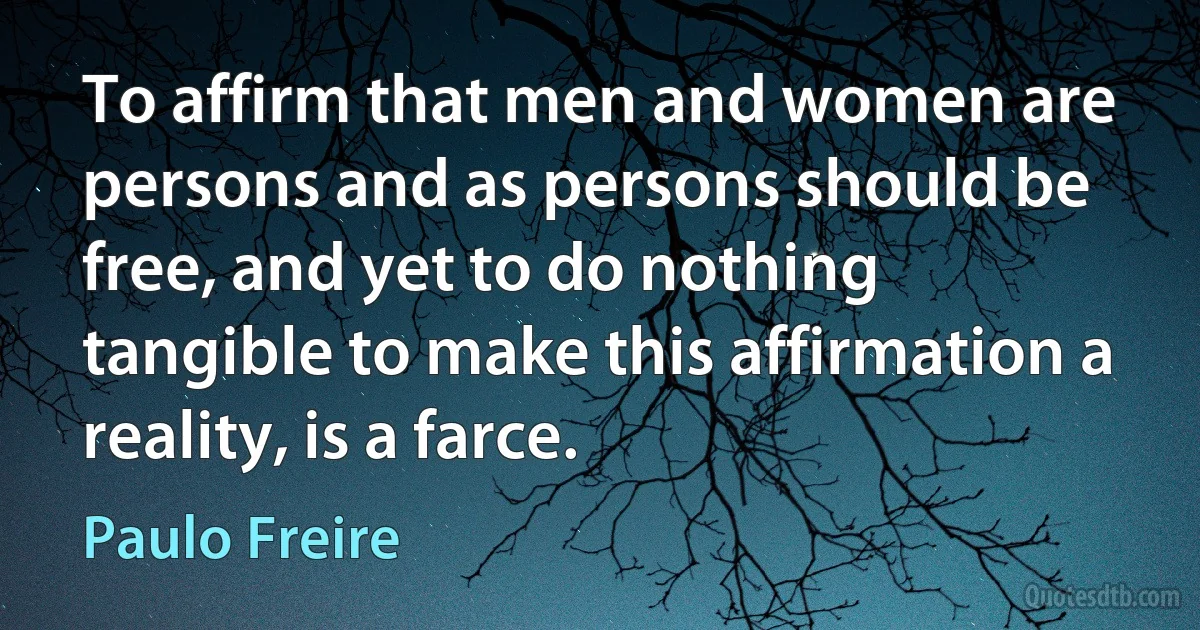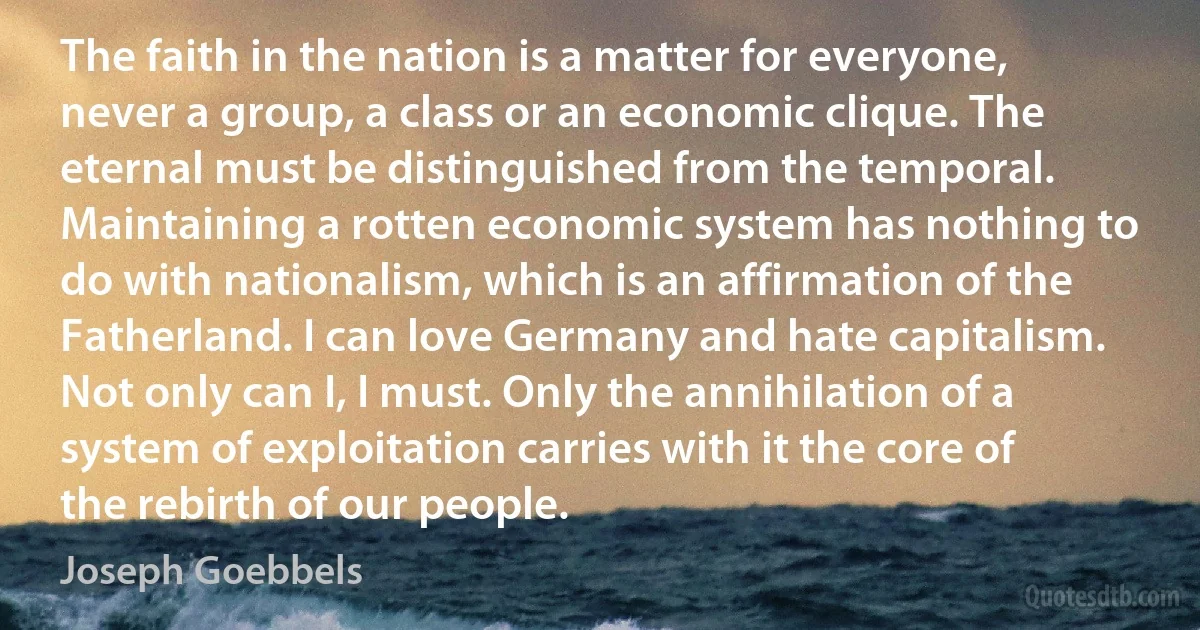Affirmation Quotes - page 2
And neither ought we to be surprised by the affirmation that the consciousness of the Universe is composed and integrated by the consciousnesses of the beings which form the Universe, by the consciousnesses of all the beings that exist, and that nevertheless it remains a personal consciousness distinct from those which compose it. Only thus is it possible to understand how in God we live, move, and have our being.

Miguel de Unamuno
As a graduate student at Yale, I studied the whole of Christian theology but focused my attention on the Darwinian controversies. I wanted to get to the root of the conflict between Darwinian evolution and Christian doctrine. In the course of my research I learned (to my surprise) that biblical chronology played almost no role in the 19th- century controversies, since most theologians had already accepted geological evidence for the age of the earth and re-interpreted the days in Genesis as long periods of time. Instead, the central issue was design. God created the cosmos with a plan in mind. This affirmation is among the most basic in all of Christianity (and other theistic religions as well, including Unificationism). And that plan included human beings as the final outcome of the creative process: we are created in the image of God.

Jonathan Wells
An atheist, like a Christian, holds that we can know whether or not there is a God. The Christian holds that we can know there is a God; the atheist, that we can know there is not. The Agnostic suspends judgment, saying that there are not sufficient grounds either for affirmation or for denial. At the same time, an Agnostic may hold that the existence of God, though not impossible, is very improbable; he may even hold it so improbable that it is not worth considering in practice. In that case, he is not far removed from atheism. His attitude may be that which a careful philosopher would have towards the gods of ancient Greece. If I were asked to prove that Zeus and Poseidon and Hera and the rest of the Olympians do not exist, I should be at a loss to find conclusive arguments. An Agnostic may think the Christian God as improbable as the Olympians; in that case, he is, for practical purposes, at one with the atheists.

Bertrand Russell
There was something in the wild strength of this landscape, once a battlefield, that seemed to be shouting at him, a presence born of that strength whose cry his whole being recognized as familiar, caught and threw back into the wind, some youthful passage of courage and pride - the passionate, yet so nearly always hypocritical, affirmation of one's soul perhaps, he thought, of the desire to be, to do, good, what was right.

Malcolm Lowry
When finally our Constitution was adopted, it contained specific provision that the President and members of the Congress and of state legislatures, and all executive and judicial officials, should be qualified for the discharge of their office by oath or affirmation. By the statute law of the United States, and I doubt not by all States, such oaths are administered by a solemn appeal to God for help in the keeping of their covenants. I scarcely need to refer to the fact that the houses of the Congress, and so far as I know the state legislatures, open their daily sessions with prayer. The foundation of our independence and our Government rests upon our basic religious convictions. Back of the authority of our laws is the authority of the Supreme Judge of the World, to whom we still appeal for their final justification.

Calvin Coolidge
So, then, as darkness had no beginning, neither will it ever have an end. So, then, is it eternal. The negation of aught else, is its affirmation. Where the light cannot come, there abideth the darkness. The light doth but hollow a mine out of the infinite extension of the darkness. And ever upon the steps of the light treadeth the darkness; yea, springeth in fountains and wells amidst it, from the secret channels of its mighty sea. Truly, man is but a passing flame, moving unquietly amid the surrounding rest of night; without which he yet could not be, and whereof he is in part compounded.

George MacDonald
Maintaining a rotten economic system has nothing to do with nationalism, which is an affirmation of the Fatherland. I can love Germany and hate capitalism. Not only can I, I must. Only the annihilation of a system of exploitation carries with it the core of the rebirth of our people.

Joseph Goebbels
If a Communist shouts "Down with nationalism!”, he means the hypocritical bourgeois patriotism that sees the economy only as a system of slavery. If we make clear to the man of the left that nationalism and capitalism, that is the affirmation of the Fatherland and the misuse of its resources, have nothing to do with each other, indeed that they go together like fire and water, then even as a socialist he will come to affirm the nation, which he will want to conquer.

Joseph Goebbels
The people's community must not be a mere phrase, but a revolutionary achievement following from the radical carrying out of the basic life needs of the working class. A ruthless battle against corruption! A war against exploitation, freedom for the workers! The elimination of all economic-capitalist influences on national policy. Maintaining a rotten economic system has nothing to do with nationalism, which is an affirmation of the Fatherland... The sin of liberal thinking was to overlook socialism's nation-building strengths, thereby allowing its energies to go in anti-national directions.

Joseph Goebbels
The condemned man found himself transformed into a hero by the sheer extend of his widely advertised crimes, and sometimes the affirmation of his belated repentance. Against the law, against the rich, the powerful, the magistrates, the constabulary or the watch, against taxes and their collectors, he appeared to have waged a struggle with which one all too easily identified. The proclamation of these crimes blew up to epic proportions the tiny struggle that passed unperceived in everyday life. If the condemned man was shown to be repentant, accepting the verdict, asking both God and man for forgiveness for his crimes, it was as if he had come through some process of purification: he died, in his own way, like a saint.

Michel Foucault

![His [Bhagwan Dass'] teaching seemed to be no teaching because he always taught from within ... that is, his lessons aroused in me just affirmation ... as if I knew it all already. (Ram Dass)](https://cdn.quotesdtb.com/img/quotes_images_webp/27/ram-dass-affirmation-teaching-446727.webp)

